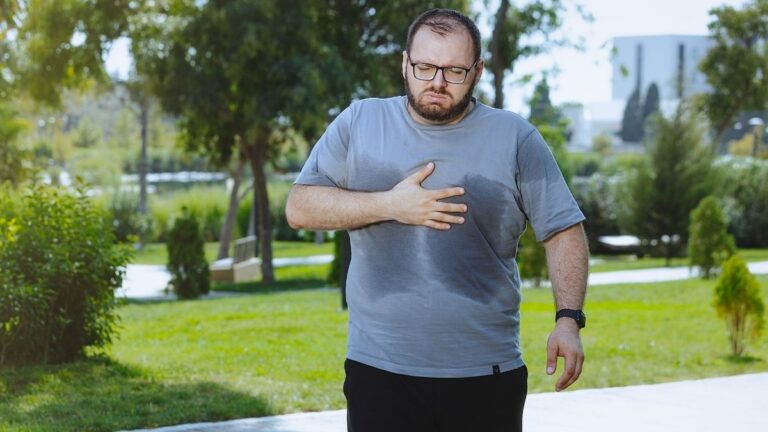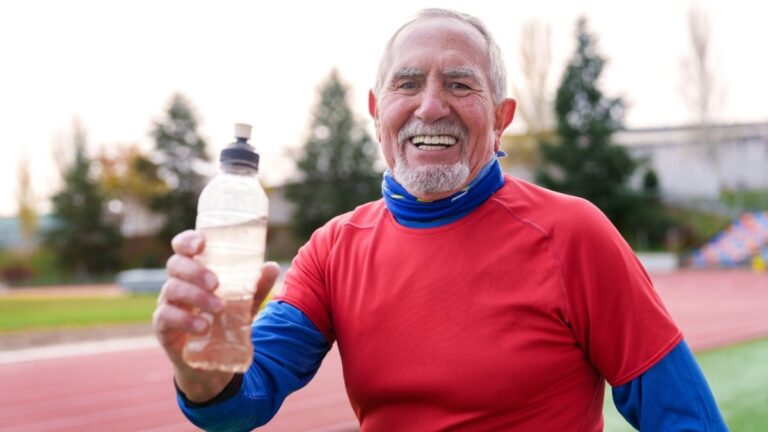Steer Clear of These 15 Dangerous Road Trip Snacks Over 50 (Total Catastrophe) — They’re Recipe for Disaster!
That innocent bag of chips you grabbed at the last gas stop could be the difference between a memorable road trip and an emergency room visit.
Adults over 50 face unique dietary challenges and safety risks during road trips that younger travelers don’t consider—from medication interactions to increased choking hazards and blood sugar crashes that can impair driving.
This guide reveals 15 specific road trip snacks over 50 that pose serious dangers, explaining why each threatens senior travel safety and providing healthy travel snacks alternatives. Before your next adventure, discover which seemingly harmless snacks could derail your journey and what to pack instead.
🚗 5-Minute Senior Road Trip Snack Safety Check
15 Red Flags vs. Green Lights for Safe Travels After 50+
⚠️ Why This Matters for 50+ Travelers
📱 Save This Checklist Before Your Next Road Trip!
Why Food Choices Matter More After 50
Your body changes after 50, and so should your snack game. Your metabolism slows down, making it harder to process heavy foods during long car rides. Many adults take medications that don’t mix well with certain foods. Blood sugar swings hit harder and last longer than they used to.

Here’s what the numbers tell us: 60% of adults over 50 take at least one prescription medication. Car accidents jump 23% between 3-6 PM when blood sugar typically crashes. Dehydration cuts cognitive function by 12% in adults 65 and older.
The wrong snacks can turn a fun road trip into a medical emergency. But the right choices keep you alert, comfortable, and safe behind the wheel.
Key risks to watch:
- Medication interactions with common foods
- Blood sugar crashes that affect driving
- Dehydration from poor food choices
- Digestive problems during long sits
- Drowsiness that puts everyone at risk
The 15 Most Dangerous Road Trip Snacks for Adults Over 50
1. Energy Drinks
Energy drinks seem like the perfect pick-me-up for long drives. But they’re loaded with caffeine that can spike your blood pressure and cause heart palpitations. Your body becomes more sensitive to caffeine as you age. One energy drink can contain 300mg of caffeine – that’s three cups of coffee at once.

The real danger comes from medication interactions. Blood thinners, heart medications, and even some antibiotics don’t mix well with high caffeine doses. You might feel wired for an hour, then crash hard when your body can’t handle the overload.
Why it’s dangerous:
- Heart palpitations and blood pressure spikes
- Dangerous interactions with common medications
- Severe energy crashes after initial boost
- Can cause anxiety and jitters while driving
Smart swap: Green tea gives you gentle caffeine without the crash. Coconut water with electrolytes keeps you hydrated and alert.
2. Sugary Candy Bars
Candy bars promise quick energy, but they deliver the opposite. The sugar rush hits fast, then your blood sugar plummets within 30 minutes. This crash can make you drowsy, confused, or shaky – not ideal when you’re driving 70 mph. For people with diabetes, this rollercoaster can be downright dangerous.
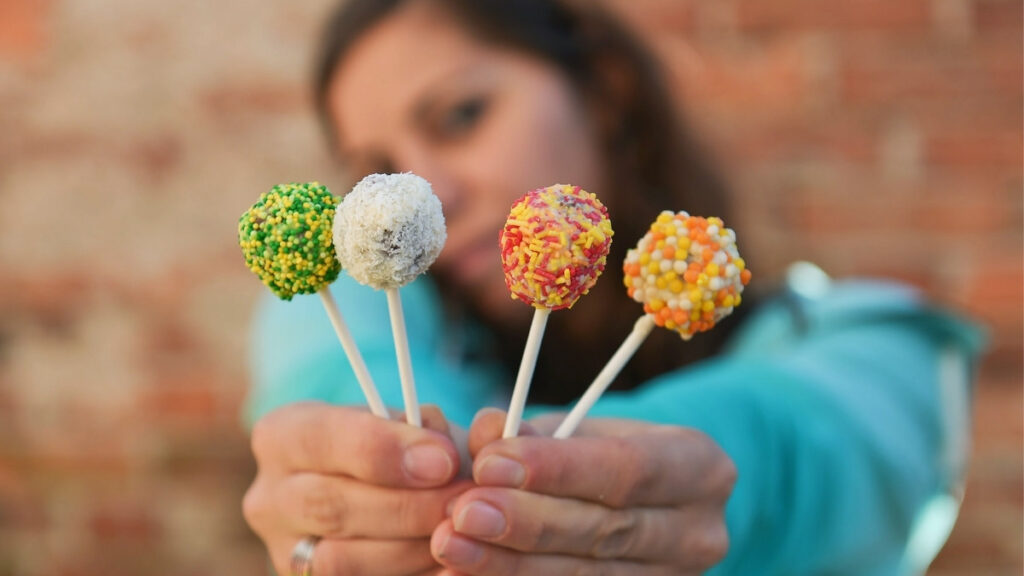
Your body’s insulin response changes with age. What used to give you a quick boost now leaves you feeling worse than before. The crash hits harder and lasts longer, putting you and other drivers at risk.
Why it’s dangerous:
- Rapid blood sugar spikes followed by dangerous crashes
- Worsens diabetes complications
- Can cause drowsiness and poor focus while driving
- Energy crashes make you crave more sugar
Smart swap: Dark chocolate with nuts provides steady energy. Look for protein bars with less than 10g of sugar.
3. Salty Chips and Crackers
That bag of chips might taste good, but it’s packed with sodium your body doesn’t need. Most chips contain 200-300mg of sodium per small serving – and who stops at one serving? High sodium intake makes you bloated, thirsty, and uncomfortable during long car rides. It also messes with blood pressure medications.
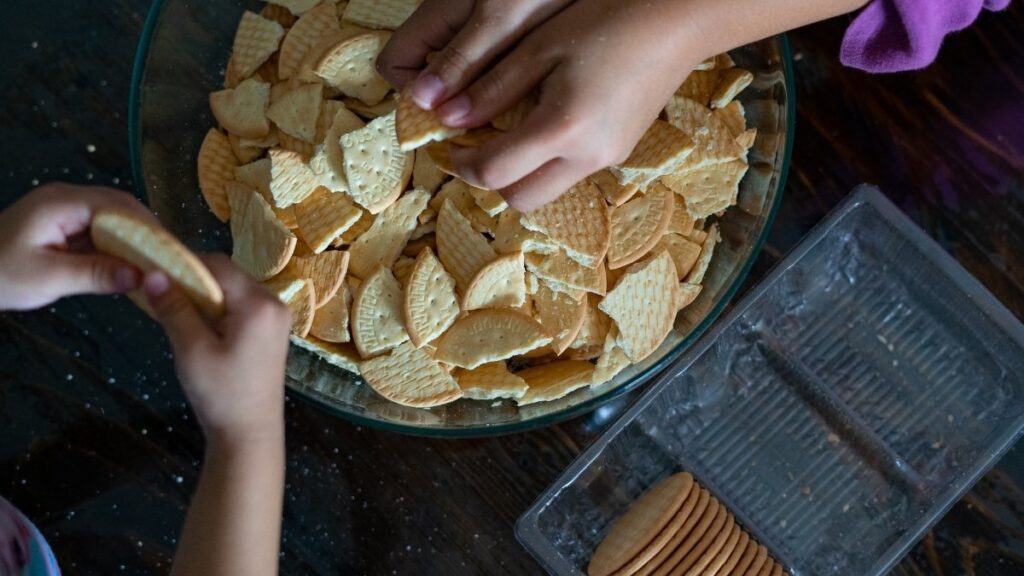
Salt makes your body hold onto water, which means more bathroom stops. But it also dehydrates your cells, making you feel tired and foggy. Your kidneys work harder to process the excess sodium, especially if you’re already on blood pressure medication.
Why it’s dangerous:
- Interferes with blood pressure medications
- Causes uncomfortable bloating during long sits
- Leads to dehydration despite making you thirsty
- Can spike blood pressure dangerously
Smart swap: Lightly salted nuts or air-popped popcorn give you crunch without the sodium overload.
4. Processed Cheese Products
Those individually wrapped cheese slices and cheese crackers are convenient, but they’re loaded with sodium and artificial additives. Processed cheese can contain 400mg of sodium per serving – that’s 17% of your daily limit in one small package. These additives can cause digestive issues, especially when you’re sitting for hours.
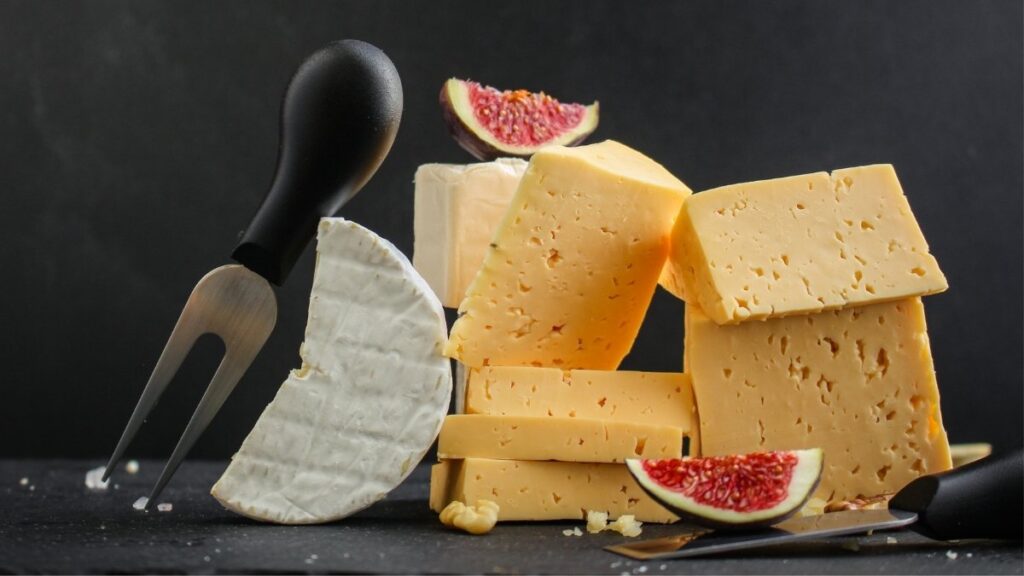
Your digestive system slows down as you age, making it harder to process artificial ingredients. This can lead to uncomfortable gas, bloating, and stomach pain during your trip.
Why it’s dangerous:
- High sodium content affects blood pressure
- Artificial additives cause digestive problems
- Can trigger severe bloating during long car rides
- May interfere with medication absorption
Smart swap: Natural string cheese or small portions of hard cheese give you protein without the chemicals.
5. Carbonated Sodas
Soda seems refreshing, but it’s a triple threat for older adults. The caffeine can interact with medications, the sugar causes energy crashes, and the carbonation makes you need bathroom stops every hour. Diet sodas aren’t better – artificial sweeteners can cause digestive issues and headaches.
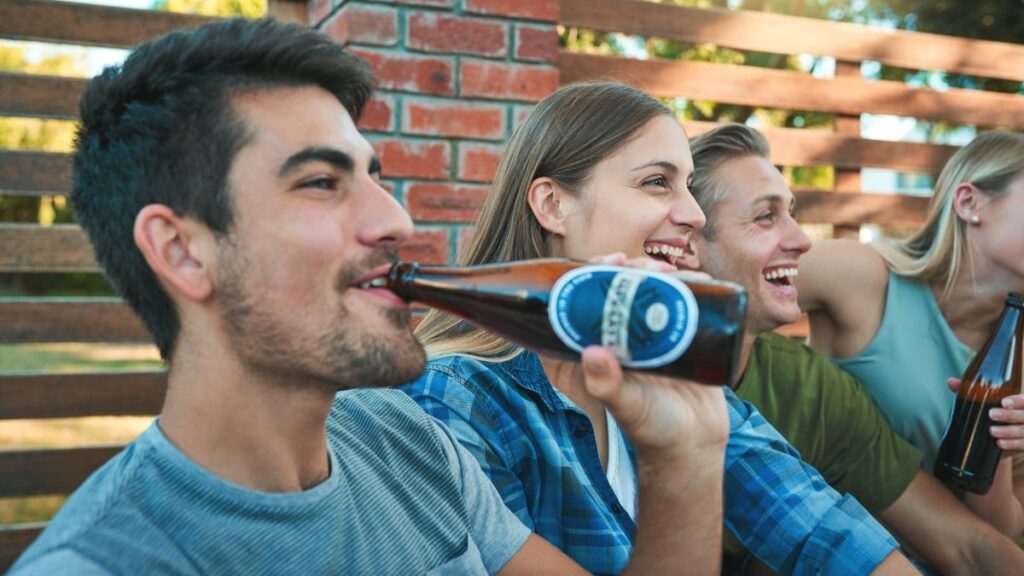
The diuretic effect of caffeine makes dehydration worse, not better. You think you’re getting fluids, but you’re actually losing them. This puts you at risk for confusion, dizziness, and poor driving performance.
Why it’s dangerous:
- Caffeine crashes affect driving safety
- Diuretic effect increases dehydration risk
- Frequent bathroom stops disrupt travel plans
- Sugar overload followed by energy crashes
Smart swap: Sparkling water with a splash of fruit juice or herbal iced tea keeps you refreshed without the risks.
6. Beef Jerky
Beef jerky seems like a protein-packed travel snack, but it’s dangerously high in sodium. One ounce contains 480mg of sodium – that’s 20% of your daily limit. The tough, chewy texture also poses a choking risk, especially if you have dry mouth from medications. Many seniors take medications that reduce saliva production.
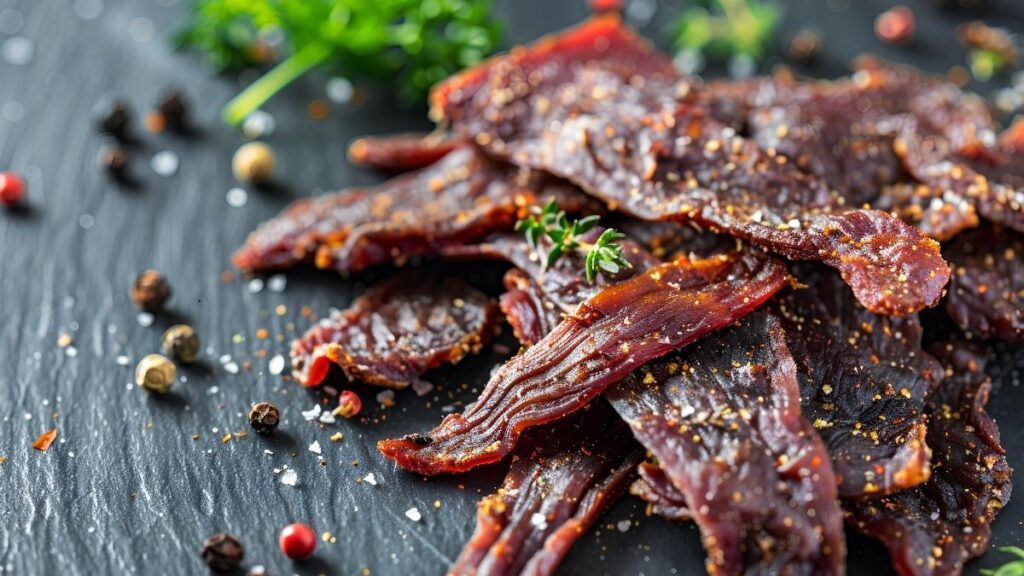
The extreme sodium content can interfere with blood pressure medications and cause uncomfortable swelling in your hands and feet during long car rides.
Why it’s dangerous:
- Extreme sodium content (480mg per ounce)
- Choking hazard, especially with dry mouth
- Interferes with blood pressure medications
- Can cause uncomfortable swelling during travel
Smart swap: Turkey jerky has less sodium, or choose unsalted nuts for safe protein.
7. Donuts and Pastries
Donuts and pastries are loaded with trans fats and sugar – a dangerous combination for older adults. Trans fats increase inflammation and can worsen heart conditions. The sugar causes a rapid spike followed by a crash that makes you drowsy and unfocused. This energy crash typically happens 30-45 minutes after eating.
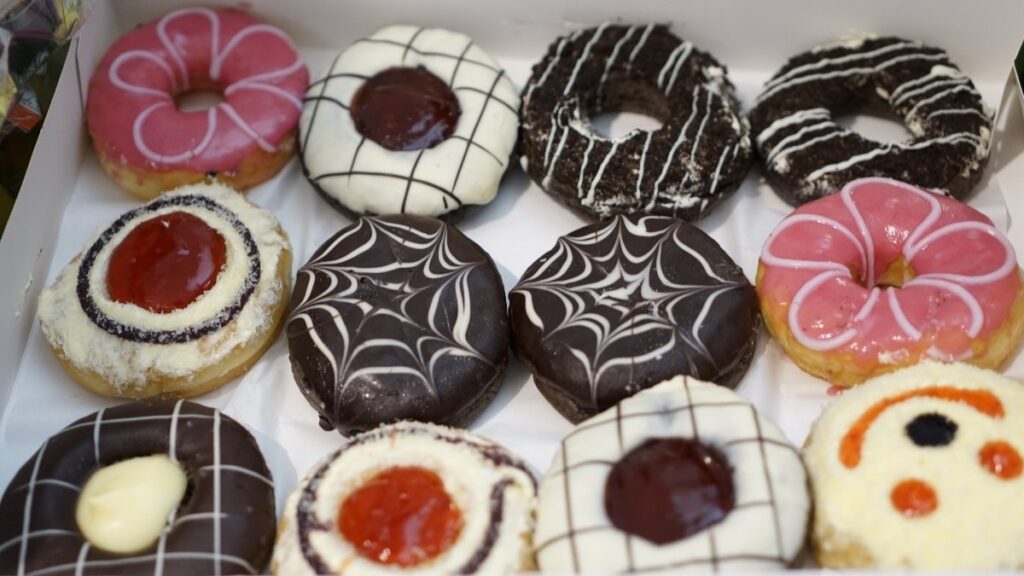
Many pastries contain partially hydrogenated oils, which are particularly harmful to heart health as you age. The combination of sugar and trans fats can make you feel sluggish for hours.
Why it’s dangerous:
- Trans fats worsen heart conditions
- Immediate energy spike followed by dangerous crash
- Can cause drowsiness that affects driving
- High calorie content without nutrients
Smart swap: Whole grain muffins or apple slices with nut butter provide steady energy without the crash.
8. Spicy Snacks
Spicy chips, nuts, and crackers can trigger heartburn and acid reflux – problems that get worse with age. Many medications for heart conditions actually increase your risk of acid reflux. Heartburn while driving is not only uncomfortable, it’s distracting and dangerous.
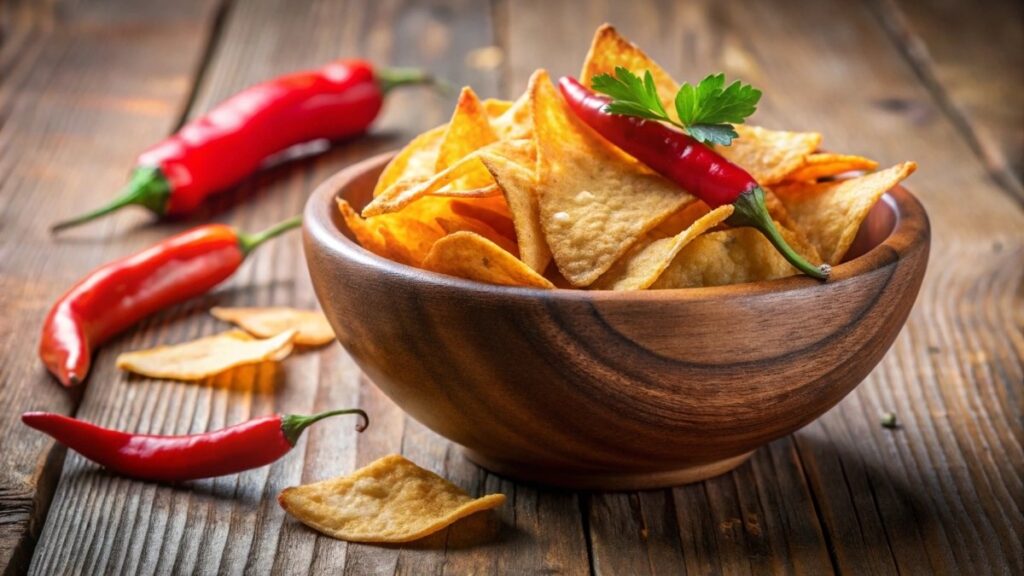
The pain and discomfort from acid reflux can make it hard to focus on the road. Some people experience chest pain that can be confused with heart problems, causing panic while driving.
Why it’s dangerous:
- Triggers heartburn and acid reflux
- Medications increase acid reflux risk
- Pain and discomfort distract from driving
- Can cause panic if chest pain occurs
Smart swap: Mildly seasoned nuts or herb-flavored crackers give you flavor without the burn.
9. Ice Cream and Frozen Treats
Ice cream might seem like a cooling treat, but 65% of adults develop some lactose intolerance after age 50. Even if you could handle dairy before, your body produces less lactase enzyme as you age. This can lead to gas, bloating, cramps, and urgent bathroom needs during your trip.

The temperature shock of very cold foods can also trigger digestive spasms and discomfort, especially when you’re already stressed from driving.
Why it’s dangerous:
- 65% of adults develop lactose intolerance after 50
- Can cause urgent digestive issues while driving
- Temperature shock triggers digestive spasms
- Dairy increases mucus production
Smart swap: Frozen fruit bars or dairy-free ice cream alternatives satisfy your sweet tooth safely.
10. Hard Candies
Hard candies pose a serious choking risk for older adults. Many medications cause dry mouth, which makes it harder to dissolve hard candies safely. The risk increases when you’re distracted by driving. Even sugar-free hard candies can cause digestive upset if you eat too many.
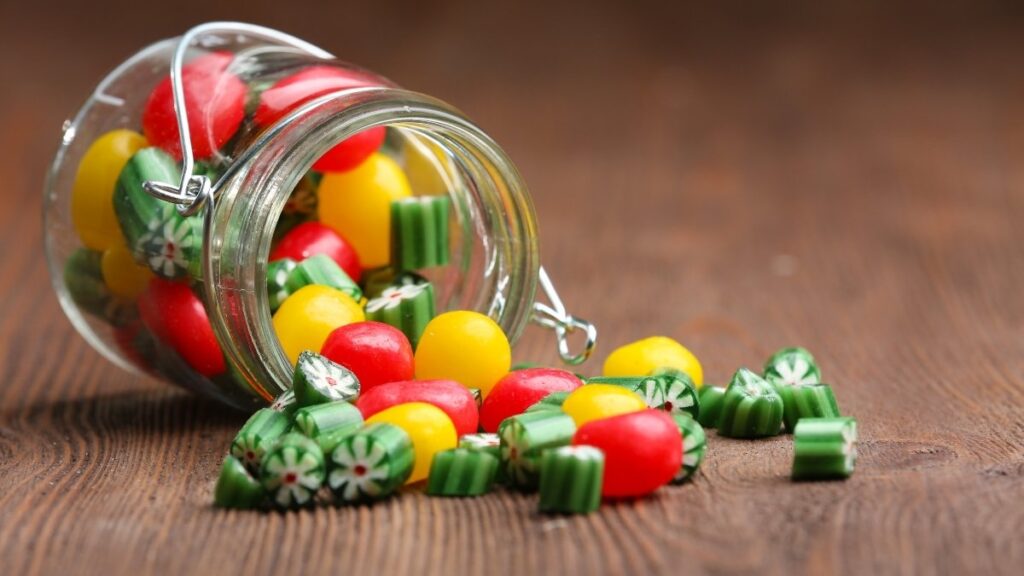
Dry mouth from medications means less saliva to help break down the candy. If a piece gets lodged in your throat while driving, you might not be able to get help quickly.
Why it’s dangerous:
- Serious choking hazard, especially with dry mouth
- Medications increase choking risk
- Blood sugar spikes from regular candies
- Can cause panic if choking occurs while driving
Smart swap: Sugar-free gum helps with dry mouth, or try soft fruit gummies that dissolve easily.
11. Alcohol-Based Products
Even foods with small amounts of alcohol can be dangerous for older adults. Your body processes alcohol differently as you age, and even tiny amounts can interact with common medications. Some cough drops, energy bites, and desserts contain enough alcohol to affect your driving ability or interact with prescriptions.
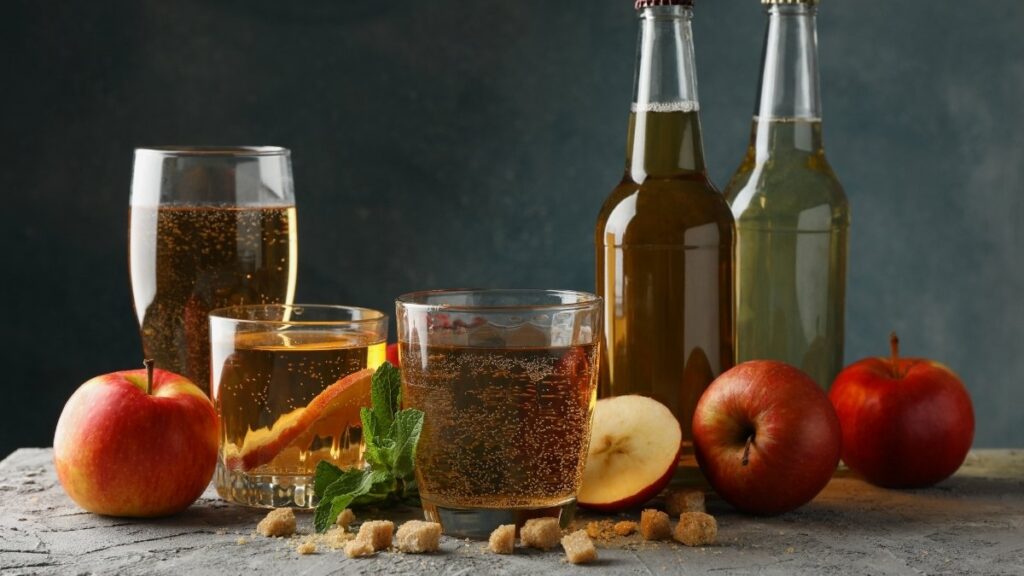
The combination of alcohol and medications can cause dizziness, confusion, or dangerous drops in blood pressure – all serious risks while driving.
Why it’s dangerous:
- Dangerous interactions with common medications
- Even small amounts affect older adults more
- Can cause dizziness and confusion while driving
- Legal issues if alcohol is detected during traffic stops
Smart swap: Non-alcoholic versions of foods, kombucha, or alcohol-free beer if you want flavor variety.
12. Energy Bars with Caffeine
Many energy bars hide massive amounts of caffeine – sometimes 100mg or more per bar. That’s equivalent to a cup of coffee, but it’s not clearly labeled. Combined with artificial stimulants like taurine or guarana, these bars can stress your cardiovascular system. Your heart becomes more sensitive to stimulants as you age.
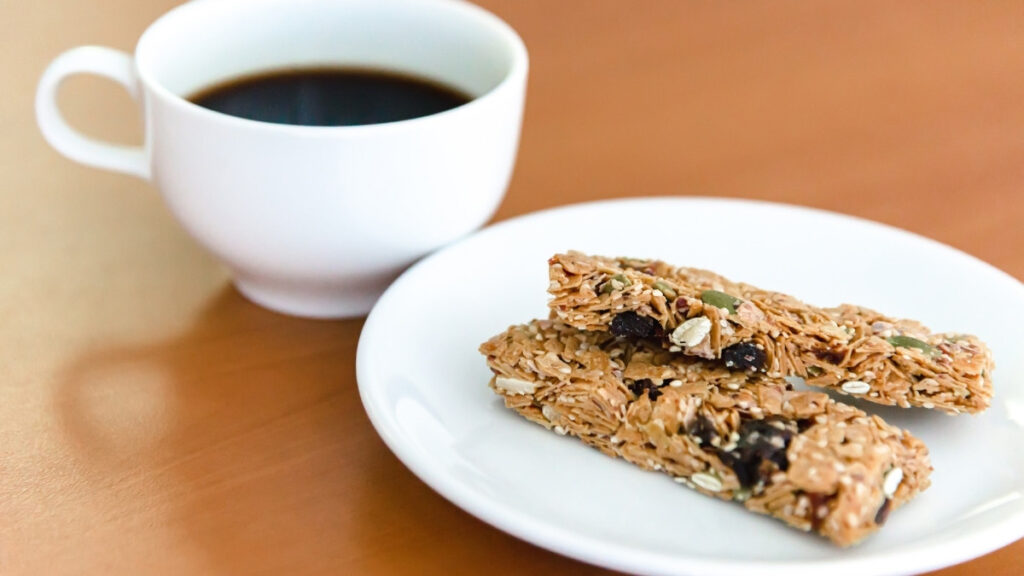
The hidden caffeine can interact with medications and cause dangerous spikes in blood pressure or heart rate while you’re driving.
Why it’s dangerous:
- Hidden caffeine equivalent to coffee
- Artificial stimulants stress the cardiovascular system
- Can interact with heart medications
- May cause dangerous heart rate spikes while driving
Smart swap: Protein bars without stimulants or homemade trail mix give you energy naturally.
13. Acidic Fruits
Citrus fruits and other acidic foods can trigger heartburn and interfere with medication absorption. Grapefruit is particularly dangerous because it affects how your liver processes many common medications, making them either too weak or too strong. Other acidic fruits like oranges and pineapple can cause stomach upset during long car rides.
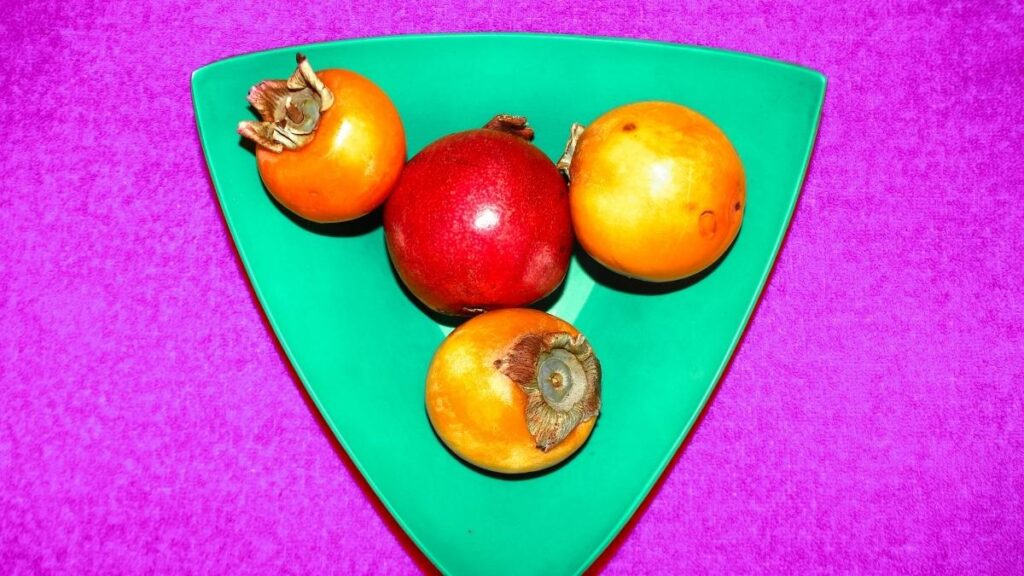
The acid can also worsen GERD symptoms, which become more common with age and certain medications.
Why it’s dangerous:
- Can interfere with medication absorption rates
- Grapefruit dangerously affects medication processing
- Triggers heartburn and GERD symptoms
- Stomach acid problems worsen during stress of driving
Smart swap: Bananas, apples, and pears provide vitamins without the acid problems.
14. Coffee Shop Specialty Drinks
Those fancy coffee drinks are loaded with hidden sugars and excessive caffeine. A large frappuccino can contain over 400 calories and 95mg of caffeine – plus artificial flavors and preservatives. The combination of sugar and caffeine creates a roller coaster effect that’s dangerous for driving.
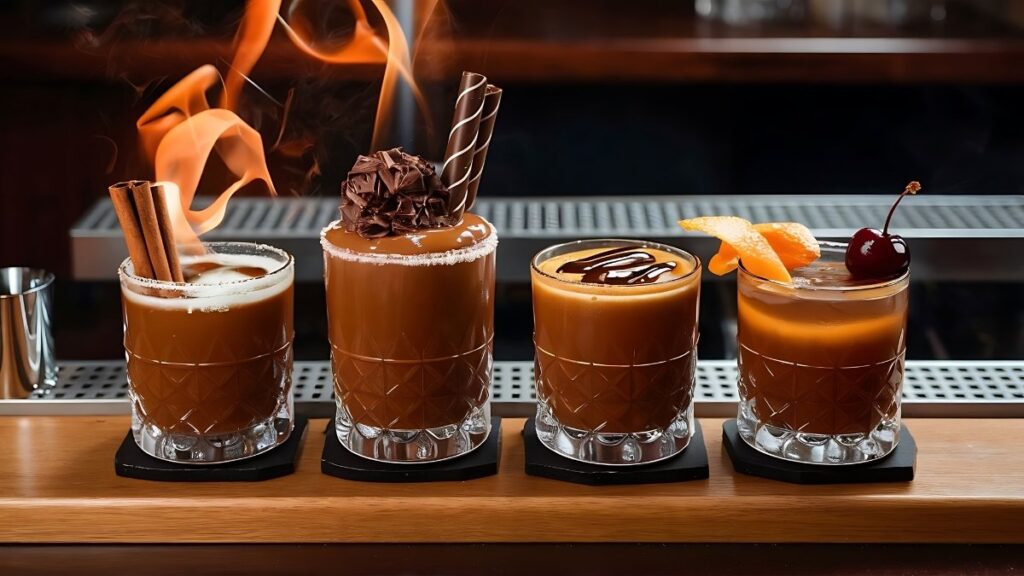
Many of these drinks also contain dairy, which can cause digestive issues if you’ve developed lactose intolerance.
Why it’s dangerous:
- Hidden sugars cause energy crashes
- Excessive caffeine affects heart rhythm
- High calorie content without nutrition
- Dairy can trigger digestive problems
Smart swap: Plain coffee with milk or herbal tea gives you a gentle energy boost without the sugar crash.
15. Pre-packaged Sandwiches
Gas station and convenience store sandwiches pose serious food safety risks. They often sit at unsafe temperatures and contain preservatives that can cause allergic reactions. Listeria risk increases with age because your immune system becomes less effective at fighting foodborne illness.
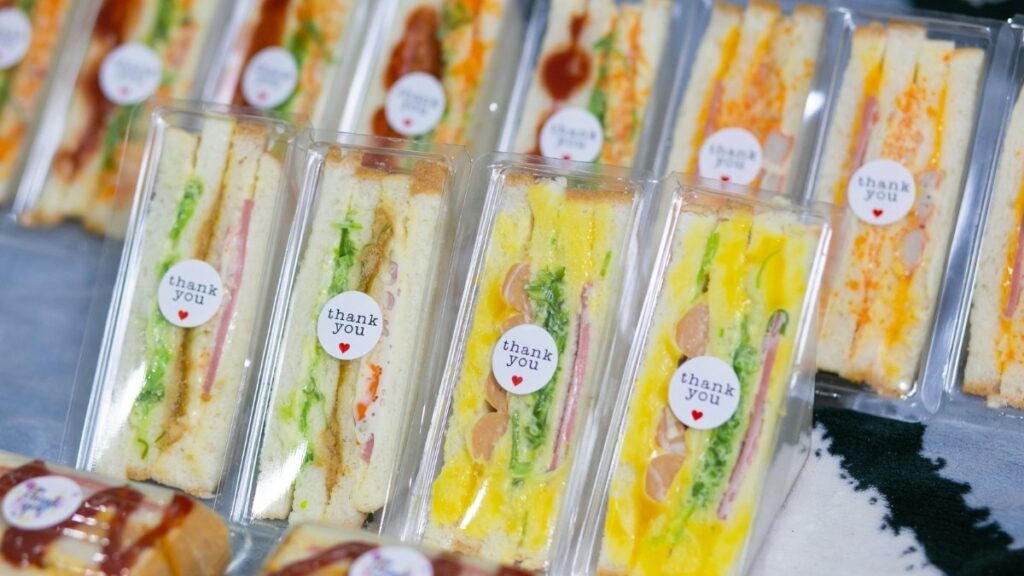
These sandwiches are also loaded with sodium and may contain ingredients that interact with medications.
Why it’s dangerous:
- Food safety risks from temperature control issues
- Listeria risk increases with age
- High sodium content affects blood pressure
- Preservatives can cause allergic reactions
Smart swap: Pack freshly made sandwiches in a cooler or choose shelf-stable protein options.
Smart Snacking Strategies for 50+ Road Warriors
Plan your snacks around your medication schedule. Some medications work better with food, others need an empty stomach. Time your meals to maintain steady blood sugar without creating bathroom emergencies. Eat small portions every 2-3 hours instead of large meals that make you drowsy.
Pack a variety of textures and flavors to prevent boredom eating. Choose foods that are easy to eat with one hand while parked safely. Always have emergency snacks that won’t spoil if your trip takes longer than expected.
Smart timing strategies:
- Eat protein within 2 hours of long driving stretches
- Avoid heavy meals 30 minutes before driving
- Pack medication-friendly snacks for timing needs
- Plan bathroom stops around snack schedules
Portion control tips:
- Pre-portion snacks into small containers
- Choose single-serving packages to avoid overeating
- Balance protein, healthy fats, and complex carbs
- Drink water between snacks, not sugary drinks
Building Your Safe Snack Travel Kit
Your travel kit should include non-perishable proteins like nuts, seeds, and protein bars without added stimulants. Add complex carbohydrates like whole grain crackers or dried fruits for steady energy. Include electrolyte options like coconut water or low-sodium vegetable juice.
Temperature-stable options work best for long trips. Think shelf-stable individual nut butters, whole grain cereal, or homemade trail mix. Pack everything in easy-to-open containers that you can manage while wearing a seatbelt.
Essential kit components:
- Protein sources that don’t need refrigeration
- Complex carbohydrates for sustained energy
- Electrolyte drinks without excessive sugar
- Emergency water and basic first aid supplies
- Easy-open packaging for limited mobility situations
Smart packing tips:
- Use insulated bags for temperature-sensitive items
- Pack wet wipes for easy cleanup
- Include plastic bags for trash and leftovers
- Label everything with dates for food safety
Your Road Trip Success Plan
Smart snacking after 50 isn’t about restriction – it’s about making choices that keep you safe, alert, and comfortable on the road. The wrong snacks can turn a fun adventure into a medical emergency. The right ones enhance every mile of your journey.
Plan ahead, pack smart, and listen to your body. Your future self will thank you when you arrive at your destination feeling great instead of dealing with preventable health issues.
Start planning your next road trip with these guidelines. Share your safe snacking discoveries with other travelers who want to stay healthy on the road.






